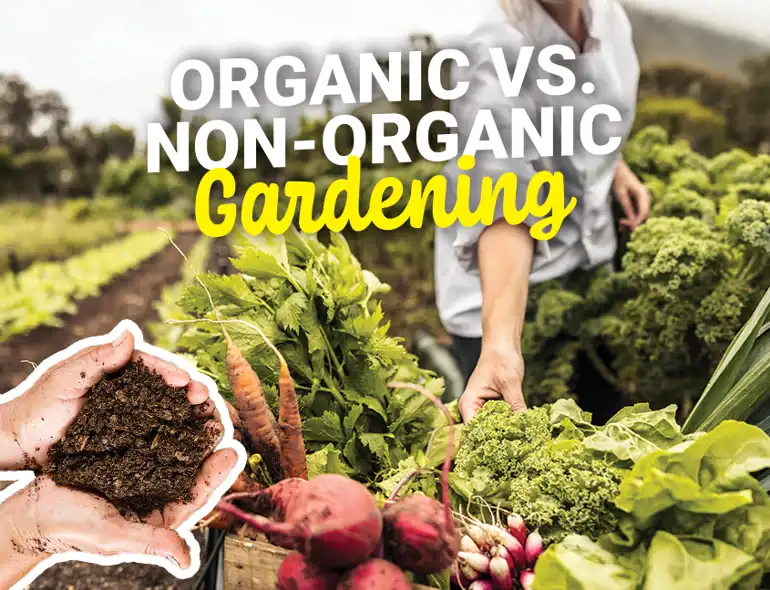Are you lost trying to choose growing a garden organically or going the non-organic route, (or what any of that even all means) don't you worry! We've got your back as we delve deep into the basics and not so basics of what it means to embrace an organic garden versus a non-organic one.
Table of Contents:
- What Does Organic Mean?
- Organic vs Non-Organic: What's the Difference?
- Digging Deeper into Organic Gardening
- Non-Organic Plants and Their Place in Your Garden
- Organic and Conventional Gardening: Pros and Cons
- The Allure of Going Organic: Is It Worth It?
- The Great Debate: Organic and Non-Organic
- Unearth the Benefits of Organic Gardening
- How to Choose Organic or Non-Organic Gardening
What Does Organic Mean?
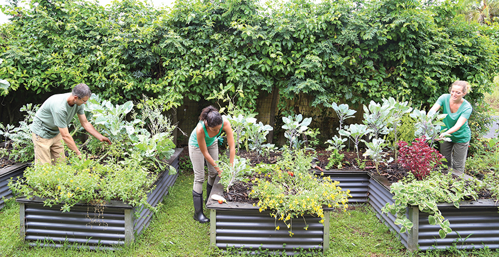
First off, let's dig (no pun intended...okay maybe a little) into the term "organic." It's definitely grown into one of those buzzwords that gets thrown around more than a hot potato at a summer barbecue. The word "organic" in gardening terms simply refers to a method that uses naturally occurring materials and processes to cultivate ( and maintain ) your garden. Long story short, using organic matter like compost or manure as fertilizers while also fighting pests with organic pesticides.
Organic vs Non-Organic: What's the Difference?
Once you start to peel back the layers, you'll quickly see a world of difference between organic and non-organic gardening. Non-organic gardening oftentimes involves using synthetic fertilizers and pesticides, which are a going to be a big no-no in organic gardens. Remember: organic means sticking as close to nature as you possibly can, just like a bee to a blossoming flower!
Digging Deeper into Organic Gardening
Organic gardening is a lot like baking bread from scratch – it takes a bit of extra time, heaps of patience, and a whole lotta love. You need to feed your soil with organic matter and organic matter ONLY. This means making use of organic fertilizers, as well as choosing organic seeds and plants. Research has revealed that using organic methods can boost the amount of organic matter in the soil. And what's the result? Well, it leads to plants that are not just healthier, but happier too! The organic movement is in full swing, and it's no surprise why!
Non-Organic Plants and Their Place in Your Garden
Now, don't get me wrong – even though organic gardening is having it's moment as the prettiest girl at the dance, non-organic plants have their place too! Many gardeners choose to use conventional methods due to the perceived convenience and guess what? That's okay too! Despite this just be aware there are drawbacks to non-organic gardening, like the potential impact on the soil environment and beneficial insects.
Organic and Conventional Gardening: Pros and Cons
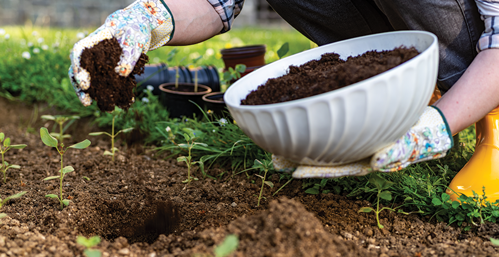
Just like every coin has two sides, the same goes for organic and conventional gardening. Organic gardening practices have clear advantages, namely: improving the soil environment and supporting beneficial wildlife (yay!). However, it can absolutely be more labor-intensive and might require a bit more of that elbow grease. Conventional gardening, on the other hand, can be easier and less time-consuming but may also have negative impacts on the environment and your health. The choice comes down to you as a gardener.
The Allure of Going Organic: Is It Worth It?
Think of going organic in your garden is like taking a scenic route – sure it might take a bit longer, but the journey is part of the fun isn't it? A a bonus, there's a certain sense of satisfaction in knowing that you're contributing to a healthier planet because you're making use of the very same methods organic farmers do. So, is going organic worth it? Well, that's a question only you can answer.
The Great Debate: Organic and Non-Organic Gardening
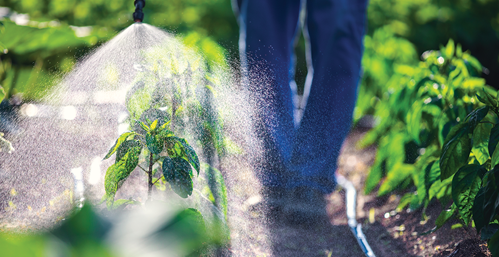
The debate between organic and non-organic methods is not as black and white as it might seem on the surface. It's all about weighing the benefits of organic gardening – (such as reduced exposure to harmful chemicals) – against the convenience of using non-organic methods. If we haven't reinforced this yet, the choice between organic and non-organic gardening comes down to each individuals personal preference and what you value in your gardening practice. There is no wrong answer, only what is right for you!
Unearth the Benefits of Organic Gardening
Now let's unearth just some of the key benefits of organic gardening. For starters: by promoting biodiversity and boosting soil health...the benefits of organic methods can be absolutely profound! Why not make organic gardening a part of your healthy lifestyle? After all, there are clearly incredible benefits to be had by eating an organic diet. So, grab those gardening gloves and get ready to dig into the organic world!
Difference Between Organic or Non-Organic Gardening
Choosing between organic and non-organic methods is kinda like... choosing between an apple and a pear – it really depends on your tastes! It's helpful to clearly layout your goals before starting, what resources you have available, and what environmental concerns you may have. Do you value the benefits of eating organic foods or the convenience of traditional gardening methods?
Organic and Conventional Gardening: A Deeper Dive
Still on the fence? If so let's dive even deeper into the specifics when it comes to the differences between organic and conventional gardening. Organic gardening is really about much, much more than just simply avoiding synthetic pesticides and fertilizers. It involves a desire to understand and work with nature's pre-existing cycles and systems. By placing your focus on soil health, organic gardeners create a sustainable environment for plants to thrive. Conversely, conventional gardening will many times overlook the importance of soil health and lean heavy on synthetic inputs.
Non-Organic Gardening: A Closer Look at Using Organic Products
The pros who do organic gardening for a living use products specifically approved for organic production. These products include organic pesticides as well as organic fertilizers derived from natural sources & are not chemically processed. Usage of organic products balances the soil ecosystem and promotes the growth organisms that will be beneficial to your plants!
The Benefits of an Organic Garden: Choose Organic Plants over Non-Organic Plants?
Environmental benefits aside, I personally believe organic gardening can also have direct benefits for you, the gardener. I know it has on me. Gardening organically has been both rewarding and challenging but I find myself having a deeper connection with nature and a greater appreciation of how natural systems work. Not to mention that by growing your own organic food you always know what exactly is in the food you eat while having fresh, healthy produce on hand.
Going Organic: What's Stopping You?
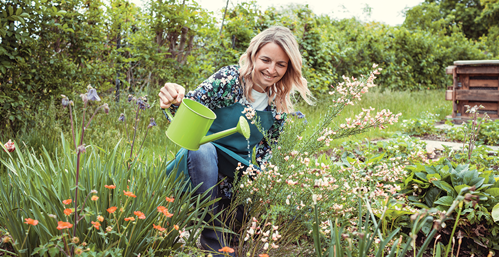
Many people who find themselves thinking about dipping their toes (or fingers!) in organic gardening aren't sure where to start. The good news is, you absolutely do not have to convert your entire garden to organic methods overnight. Start small! Maybe just try a single bed or even a few pots. Use some organic alternatives for fertilizers or pest control, or both and observe the results. You might be surprised by what you find!
Wrapping Up: Embracing Organic
The world of organic gardening...while sometimes a little more labor-intensive, offers a multitude of benefits for both the environment and the gardener. From improved soil health to the satisfaction of growing your own organic food, the rewards of organic gardening are well worth the extra effort.
Just remember, whether you choose the organic or non-organic route, gardening should always be a source of joy and satisfaction. Happy gardening!
So, go forth and nurture your garden, organic or not, and let it bloom into a haven of your very own!
Further Reading:
Facebook, Twitter or Tiktok! We are on 'em all! Won't you join us?! We'd love to have you as a part of our community.
Or sign up below for our absolutely free newsletter and we can bring the fun and knowledge directly to you!


